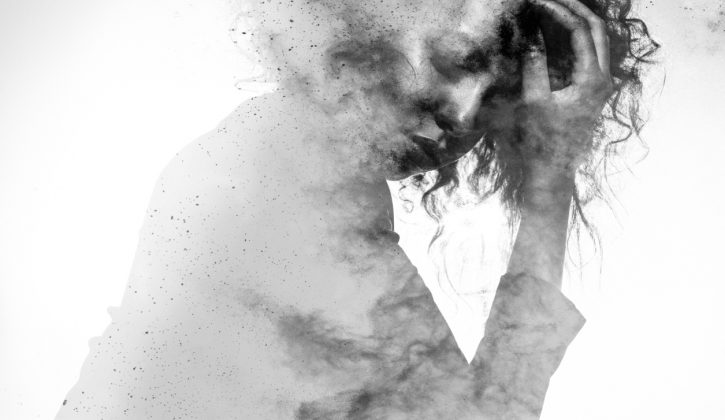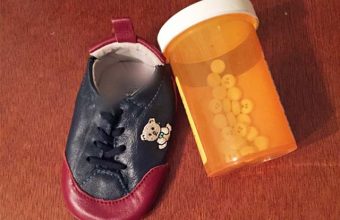When you think of the face of depression, what image comes into focus? An emo teenager? A new mom? Is it The Rock? My guess is probably not the last one. Especially because someone like that seemingly has no reason to be depressed.
Despite his macho demeanor and rock solid physique, Dwayne “The Rock” Johnson proves that anyone can fall victim to depression’s grip. In an article by Global News, he states matter-of-factly, “Depression never discriminates.”
Following a career-ending football injury, and his mother’s attempted suicide when he was a teenager, Johnson struggled with mental illness. “I was devastated and depressed. I reached a point where I didn’t want to do a thing or go anywhere. I was crying constantly. Struggle and pain is real.”
By sharing his experience, Johnson demonstrates that anyone can be vulnerable to depression and mental illness. Depression doesn’t care if you are famous, or manly. It doesn’t care if you are kind or cruel. It doesn’t matter how good your life appears to be. You don’t need a reason to be depressed.
I know this because I began my journey with depression in kindergarten. Once so outgoing, my mother feared I might be kidnapped, foiled by my unhindered willingness to befriend anyone on the street; I suddenly became withdrawn and sullen. My kindergarten report card is filled with comments about my quiet and sensitive nature. Teacher-speak for painfully, pathologically shy.
Where a year before I had taken the hand of a homeless man on the street, fully comfortable walking off with him before my mother yanked me back, I now struggled to ask permission to use the washroom.
Nothing had happened. I was not abused. I was not bullied to any meaningful extent. Nothing specific had triggered the change, it just happened, like a switch being flicked. And it never switched back.
I spent my childhood years, followed by my adolescent years, followed by my young adult years under a cloud of depression and anxiety. It informed my every move, and never offered respite. Ever-present, like any other chronic condition, it became so ingrained in my life that I legitimately don’t remember what it feels like to live without it.
My type of depression is Dysthymia. I’m functional. I’m just never happy for a sustained amount of time, and always feel on edge. With the approach of middle-age, and some life-stressors, I’ve added episodes of Double-Depression to the mix. It’s a really cute name for an awful affliction. Double-Depression is when major depressive episodes (the type of depression most people think of) overlaps with the perpetual ennui of Dysthymia. I’m less functional during those times. Mostly, all I want is sleep and solitude; just to be alone with my despair.
Those periods are mercifully not frequent, but I never know when they will sneak up on me, slithering like a snake in the grass at my picnic. I never know, because there isn’t a trigger. That’s the thing with depression: it just is. You don’t need to be depressed about something, you can simply just be depressed.
I had an idyllic childhood. Two loving parents in a happy marriage, upper-middle-class household. I went to a great school with great teachers. I was never treated poorly by anyone, I suffered no traumas. I was safe, I was secure, and I was loved and well-cared-for. I had no “reason” to be depressed – but it came for me anyway.
There is some guilt that comes with that. I have often looked at people who have been dealt a far worse hand than I, and I feel shame that they carry on while I am paralyzed by my own thoughts alone. It sometimes feels that I am unworthy of being depressed. I have not earned my right to my depression.
But that is faulty thinking, no-doubt fueled by a brain that runs on disordered thoughts to begin with. I’m no more depressed about something than a diabetic is diabetic about something. It’s an illness, and its arrival was beyond my control.
By lending his face and his image to the condition, The Rock has used his super-human strength to chip away at the bedrock of stigma that surrounds depression. He is rich. He is famous. He masculine. And none of that mattered.
He encourages people suffering in silence to come forward, particularly men who he acknowledges tend to hold it in. He urges us to be aware of the people in our lives who may be wearing a mask to cover the pain. “The key is to not be afraid to open up – [And] we’ve always got to do our best to pay attention when other people are in pain.”
It took me a long time to share my story, too.
I feared judgment, or even employment complications, from people who didn’t understand how functional depression worked. I’m not scared to talk anymore.
I want others to know they aren’t alone, and that there are people out there who understand.
Useful Links:
- Understanding and Finding Help for Depression – Ontario Mental Health Association
- Depression – Here to Help BC
- Find Mental Health Support – Ontario.ca
- Mental Health Support – Canada.ca
More From SavvyMom:
- This Classic Symbol of Depression Might Be Preventing Mine
- 10 Positive Parenting Affirmations for Tough Times
- 5 Inspiring Quotes for Monday Blues
- 7 Ways to Cope with Winter Blues
Tagged under: depression,dwayne johnson,mental illness,mental illness stigma
Category: health






